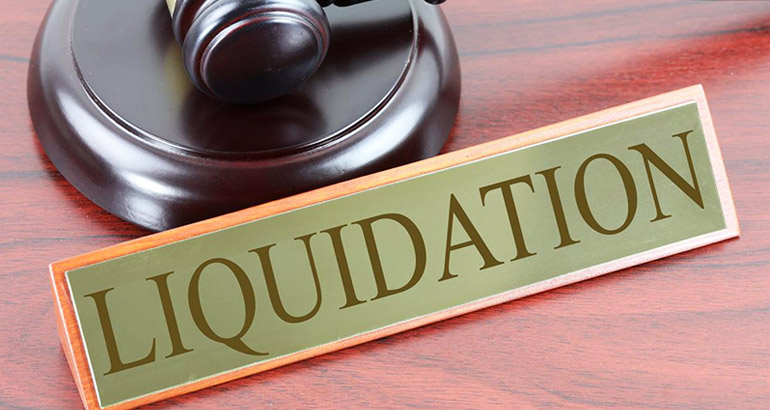The Greatest Guide To Company Liquidation
Table of ContentsThe smart Trick of Company Liquidation That Nobody is DiscussingCompany Liquidation Fundamentals Explained7 Easy Facts About Company Liquidation DescribedThe Greatest Guide To Company LiquidationThe Of Company Liquidation
These funds are asserted from the Redundancy Settlements Solution, that will consequently submit insurance claims right into the liquidator. This associates with an amount that is established aside from the firm's internet residential or commercial properties. This guarantees that unprotected creditors have a far better possibility of recuperating some of the financial debt that they are due.Floating cost possessions can be sold and traded during regular service process. The amount leftover as soon as prescribed part lenders have been managed is utilized to settle any kind of floating charge financial institutions. Providers Clients Contractors Personnel Claims Profession Creditors HM Profits and Custom-mades By quickly reclaiming control, we can aid you solve the issues that your company has.
It prevents the creditors of the business from sustaining even more financial debt and guarantees you, as a supervisor, are less likely to be guilty of wrongful trading action being brought versus you. Company Liquidation. Several of the major benefits of Liquidation are: Eliminates pressure from all creditors. Prevents further lawsuit being taken against you
Potentially permits the chance for directors and/or investors to purchase possessions at fair value, if they can be utilized in one more organization moving forward. Provides a total, tidy break for directors to go on from the company. Staff members can send redundancy pay declares with federal government systems. As liquidator's prices are paid when firm possessions are realised (giving properties are of enough value), there are no various other fees supervisors are liable for.
Rumored Buzz on Company Liquidation
Company assets, credibility and licenses will be instantaneously removed from company ownership. If you are taking into consideration selling off a firm and beginning again, there are a number of concerns and intricacies that you ought to consider.
It is not uncommon for a business to enter into liquidation and close, but for a brand-new legal entity to then be created where the possessions of the sold off company proceed. In these cases, the possessions may be obtained from the Liquidator at fair value. It is constantly worth considering all of your readily available alternatives when considering liquidating your business and starting once more.
In these circumstances, the directors of the company are shielded from the personal obligations of the firm financial obligations as the bankruptcy procedure starts. A minimal obligation structure secures those directors who have actually not stopped working in their obligations and obligations, such as where the business has battled as a result of unforeseen scenarios and exterior aspects that the supervisors had no control over.
Over a duration of 5 years post-liquidation, directors are incapable to: Come to be a supervisor of a firm trading under a comparable trade and name. Company Liquidation. Form, advertise or handle a firm under an in a similar way signed up name or trading name. Anybody discovered to have breached these restrictions will certainly be fined or, in the most significant instances, be offered a prison sentence
Fascination About Company Liquidation
Court Allocation- You can make an application to the courts to use a signed up or trading name that is similar to the preliminary firm. Existing Name- In many cases, a company might have been trading under a 'restricted' name in the 12-months to the accumulation to the liquidation procedure start.

In regards to Compulsory Liquidation, the Courts should be associated with the ending up of a firm. If you own an organization and wish to locate out more details on just how to sell off a firm read our blog site below. Exactly how to Liquidate a Business Yourself Blog site Here at The Insolvency Specialists, we have aided a variety of customers around the UK to complete their business liquidation in the way which ideal secured their financial passions.

The sees a firm wound up, shut down and struck from the Business House register. Liquidation generally occurs when a firm can no much useful link longer pay its debts, resulting in firm possessions being liquidated in order to pay lenders. The can be voluntary or it can be court-ordered, with the end video game in either instance being to 'sell off' the company.
Company Liquidation - The Facts
The size of time the takes can vary from one company to the following. It depends on the type of liquidation happening and the size of the firm being liquidated.
A tough that entails a big company and multiple lenders might take 6 to year to complete. A required liquidation is necessarily mosting likely to last a lot longer than a volunteer liquidation, as opposition is mosting likely to be fulfilled. Eventually, the more participation there is in between all events entailed, the smoother and quicker the will be.
What's navigate to this site the first action in the? And just how does a business get to the factor where liquidation is the best alternative for it? Any generally begins with the business directors acknowledging that the organization is in economic problem, or sharing a wish to shut the business down. Revenues may be down, sales stagnating or creditors might be hounding the accounting professionals to be paid.
The Facts About Company Liquidation Revealed
When a firm ends up being bankrupt and is no more able to pay its financial obligations, after that liquidation is usually the last option. This can be the outcome of negative business decisions, a bad economic climate or occasions beyond the company's control. As we'll describe, directors can likewise sell off a firm before it ends up being financially troubled.